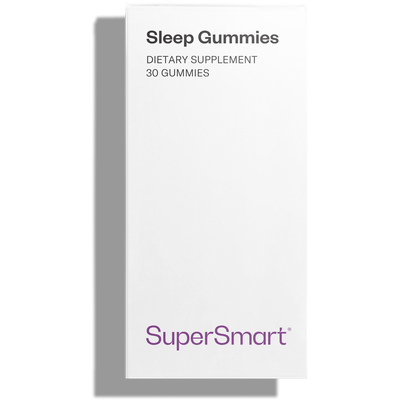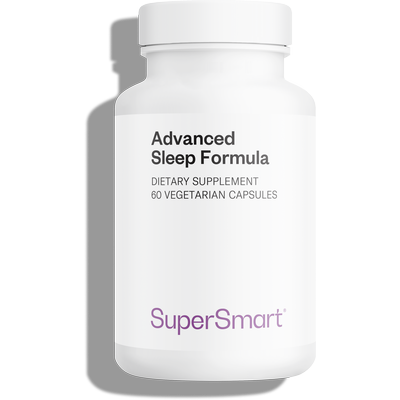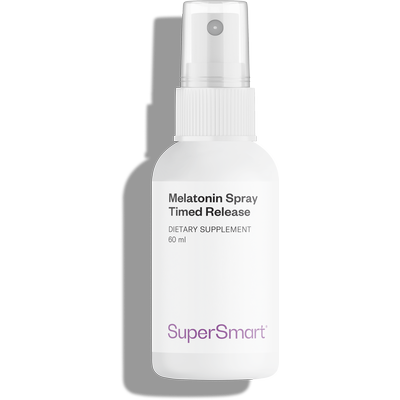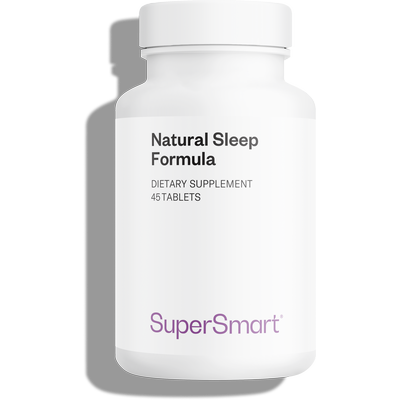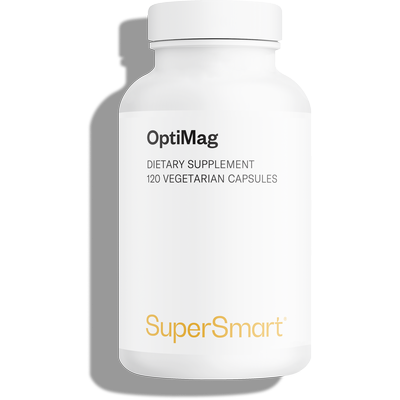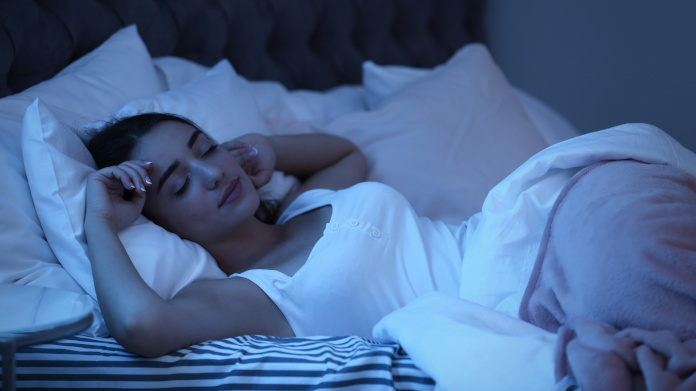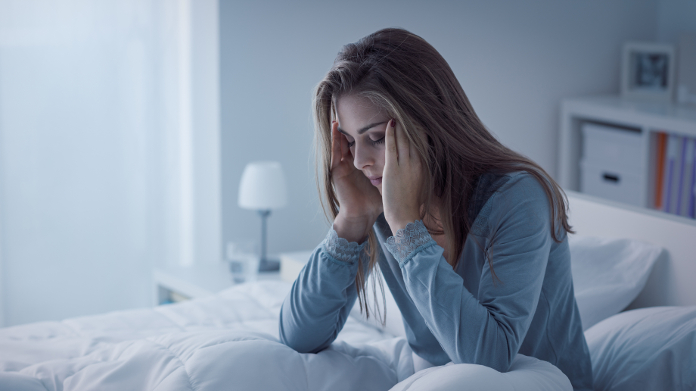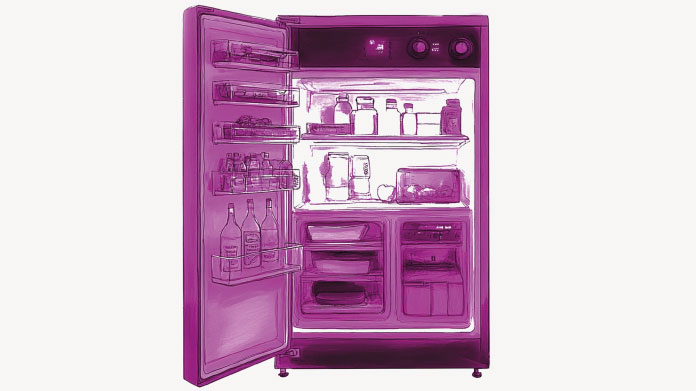Nocturnal awakenings: what is the best natural treatment for getting a good night's sleep?
Nocturnal awakenings break up your nights and can end up affecting your physical and mental recovery. Discover the best natural solution for getting back to sleep quickly.

What are nocturnal awakenings?
Definition of nocturnal awakening
Nocturnal awakening is characterised by an interruption in sleep once or several times a night.
This episode may be very brief (micro-awakening) or last for several hours, giving the brain ample time to replay its thoughts.
In many cases, this can make it difficult or impossible to get back to sleep. That's why it's one of the various forms of insomnia (1).
The main causes of waking up at night
In some cases, waking up at night simply coincides with a normal physiological phenomenon.
Remember that sleep is structured as a succession of 90-minute cycles. At the end of each cycle, our sleep becomes lighter until we enter a phase of wakefulness. This awakening is perceived to a greater or lesser extent depending on personal sensitivities, age and the time of day (we are more prone to this at the end of the night, when there is less deep sleep).
The psychological component is also a factor. It is well known that stress and anxiety increase the frequency and severity of nocturnal awakenings. An excessive mental workload, emotional difficulties or a traumatic event (bereavement, divorce, unemployment...) fuel ruminations and keep us in a form of hypervigilance which makes it difficult to fall back asleep (2).
Finally, there are the "organic" causes that impair sleep quality. Examples include hot flushes during menopause, gastro-oesophageal reflux disease (which causes regurgitation or coughing fits that wake the sleeper),sleep apnoea, restless legs syndrome, or benign prostatic hypertrophy in men (which forces them to get up several times a night to urinate) (3-7).
Nocturnal awakenings: when should you seek help?
Nocturnal awakenings become problematic when they are frequent, numerous, and affect the quality of sleep (which no longer fulfils its recuperative role).
When they are accompanied by intense tiredness, episodes of daytime sleepiness, difficulty concentrating or mood disorders, it is strongly advised to consult a health professional to understand their cause and find appropriate solutions.
Nocturnal awakenings: what 'natural treatment' should you adopt?
Here's a list of natural solutions that can be combined to reduce the frequency and duration of your nocturnal awakenings.
Above all, don't obsess about it
As with problems falling asleep, you need to play the situation down and not put too much pressure on yourself. Start by avoiding to look at the clock on your bedside table every time you wake up!
You should also be wary of connected devices that scrutinise your nights: while they certainly provide useful data, they insidiously perpetuate this idea of "sleep performance", which is more anxiety-provoking than anything else. Obviously, negative mantras such as "I must absolutely go back to sleep" should also be avoided...
Adopt a regular sleep rhythm
The same basic advice applies to all sleep disorders, including nocturnal awakenings.
These include getting up at regular times (even on weekends), exposing yourself to daylight early in the morning (to resynchronise your biological clock), banishing screens in the evening (smartphones, tablets...) and relying on sleep signals (yawning, shivering...) to go to bed at the right time (8).
Avoid foods that can cause inflammation at dinner
If you suffer from acid reflux, eliminate anything that could irritate the mucous membranes or slow down digestion at dinner: spicy or sauced dishes, fried foods, pastries, acidic foods (vinegar, citrus fruit), chocolate, coffee, alcohol (9)...
Visualise a "ritual circuit" to go back to sleep more quickly
To fall back into Morpheus' arms when you wake up at night, you absolutely must let go.
Visualisation techniques are useful here, as they help to short-circuit distracting thoughts. A good trick to condition your mind back to sleep is to have a "ritual circuit", always the same one (a train journey, a walk in the woods, etc.). When you can't get back to sleep, play back the images in your head. The only thing you risk is dozing off before the film is over!
Getting out of bed when you can't get back to sleep
If you toss and turn under the sheets but can't get back to sleep, don't insist: get up and sit down in a quiet, dim room, and distract yourself with a magazine, a good novel or some other low-intensity activity. Only go back to bed when you feel clear signs of tiredness.
Relax with valerian
Certain plants can also help, such as valerian (Valeriana officinalis).
A medicinal plant that has been used since ancient times, which helps to maintain normal sleep quality, particularly during periods of anxiety, as it also supports mental well-being in the event of tension and stress, and contributes to optimal relaxation (10).
Some supplements combine valerian with other plant extracts (such as Natural Sleep Formula, which boosts its effectiveness with hops, to help with difficulty falling asleep when the nervous system is excited, California poppy, used to reduce nervous tension and agitation, and rhodiola, a well-known adaptogen) (11-13).
Tend to your magnesium needs
Magnesium is a mineral found in brown rice, dark chocolate and oleaginous fruit, which contributes to normal psychological function and reduces daytime fatigue (14).
Several studies suggest that it may play a key role in regulating sleep as a GABA agonist, the main inhibitory neurotransmitter in the nervous system, and an NMDA antagonist, an amino acid derivative that mimics the excitatory effects of glutamate (15).
Optimising magnesium intake through highly bioassimilable supplements (for example with OptiMag, which combines no less than 8 exceptional forms of magnesium) is a serious avenue worth exploring.
Consider taking melatonin
Known as the 'sleep hormone', melatonin is directly synthesised by the pineal gland in the brain in response to a dimming light.
Because it helps to reduce the time it takes to fall asleep, it is mainly offered as a supplement to people who have difficulty falling asleep at night (16).
It does, however, help to get the sleep-wake cycle back on track, which is a welcome bonus if you're having a restless night (the sublingual form of Melatonin Spray is undeniably practical and can be absorbed almost immediately).
Synergistic supplements for better sleep?
In the case of fragmented sleep, some all-in-one formulas combine the benefits of melatonin with those of relaxing plants, in particular valerian and California poppy (described earlier), as well as the renowned passionflower, which promotes restful sleep, induces a state of calm and increases the body's resistance to stress (this is the case with the cutting-edge Advanced Sleep Formula synergy) (17).
An assortment of 'good night' ingredients can also be found in chewing gums, which are as practical as they are enjoyable (with their great passion fruit flavour, Sleep Gummies combines melatonin, valerian and passionflower with powerful CBD) (18).
SUPERSMART ADVICE
References
- Buysse DJ. Insomnia. JAMA. 2013 Feb 20;309(7):706-16. doi: 10.1001/jama.2013.193. PMID: 23423416; PMCID: PMC3632369.
- Han KS, Kim L, Shim I. Stress and sleep disorder. Exp Neurobiol. 2012 Dec;21(4):141-50. doi: 10.5607/en.2012.21.4.141. Epub 2012 Dec 26. PMID: 23319874; PMCID: PMC3538178.
- Bansal R, Aggarwal N. Menopausal Hot Flashes: A Concise Review. J Midlife Health. 2019 Jan-Mar;10(1):6-13. doi: 10.4103/jmh.JMH_7_19. PMID: 31001050; PMCID: PMC6459071.
- Orr WC. Management of nighttime gastroesophageal reflux disease. Gastroenterol Hepatol (N Y). 2007 Aug;3(8):605-6. PMID: 21960870; PMCID: PMC3099296.
- Gomase VG, Deshmukh P, Lekurwale VY. Obstructive Sleep Apnea and Its Management: A Narrative Review. 2023 Apr 10;15(4):e37359. doi: 10.7759/cureus.37359. PMID: 37182079; PMCID: PMC10174073.
- Tang M, Sun Q, Zhang Y, Li H, Wang D, Wang Y, Wang Z. Circadian rhythm in restless legs syndrome. Front Neurol. 2023 Feb 23;14:1105463. doi: 10.3389/fneur.2023.1105463. PMID: 36908590; PMCID: PMC9995399.
- Chartier-Kastler E, Leger D, Comet D, Haab F, Ohayon MM. Prostatic hyperplasia is highly associated with nocturia and excessive sleepiness: a cross-sectional study. BMJ Open. 2012 May 30;2(3):e000505. doi: 10.1136/bmjopen-2011-000505. PMID: 22649170; PMCID: PMC3367152.
- AlShareef SM. The impact of bedtime technology use on sleep quality and excessive daytime sleepiness in adults. Sleep Sci. 2022 Apr-Jun;15(Spec 2):318-327. doi: 10.5935/1984-0063.20200128. PMID: 35371396; PMCID: PMC8906383.
- Herdiana Y. Functional Food in Relation to Gastroesophageal Reflux Disease (GERD). 2023 Aug 15;15(16):3583. doi: 10.3390/nu15163583. PMID: 37630773; PMCID: PMC10458865.
- Tammadon MR, Nobahar M, Hydarinia-Naieni Z, Ebrahimian A, Ghorbani R, Vafaei AA. The Effects of Valerian on Sleep Quality, Depression, and State Anxiety in Hemodialysis Patients: A Randomized, Double-blind, Crossover Clinical Trial. Oman Med J. 2021 Mar 31;36(2):e255. doi: 10.5001/omj.2021.56. PMID: 33936782; PMCID: PMC8077445.
- Kyrou I, Christou A, Panagiotakos D, Stefanaki C, Skenderi K, Katsana K, Tsigos C. Effects of a hops (Humulus lupulus L.) dry extract supplement on self-reported depression, anxiety and stress levels in apparently healthy young adults: a randomized, placebo-controlled, double-blind, crossover pilot study. Hormones (Athens). 2017 Apr;16(2):171-180. doi: 10.14310/horm.2002.1738. PMID: 28742505.
- Abdellah SA, Berlin A, Blondeau C, Guinobert I, Guilbot A, Beck M, Duforez F. A combination of Eschscholtzia californica Cham. and Valeriana officinalis L. extracts for adjustment insomnia: A prospective observational study. J Tradit Complement Med. 2019 Mar 1;10(2):116-123. doi: 10.1016/j.jtcme.2019.02.003. PMID: 32257874; PMCID: PMC7109475.
- Ivanova Stojcheva E, Quintela JC. The Effectiveness of Rhodiola rosea L. Preparations in Alleviating Various Aspects of Life-Stress Symptoms and Stress-Induced Conditions-Encouraging Clinical Evidence. 2022 Jun 17;27(12):3902. doi: 10.3390/molecules27123902. PMID: 35745023; PMCID: PMC9228580.
- Pickering G, Mazur A, Trousselard M, Bienkowski P, Yaltsewa N, Amessou M, Noah L, Pouteau E. Magnesium Status and Stress: The Vicious Circle Concept Revisited. 2020 Nov 28;12(12):3672. doi: 10.3390/nu12123672. PMID: 33260549; PMCID: PMC7761127.
- Abbasi B, Kimiagar M, Sadeghniiat K, Shirazi MM, Hedayati M, Rashidkhani B. The effect of magnesium supplementation on primary insomnia in elderly: A double-blind placebo-controlled clinical trial. J Res Med Sci. 2012 Dec;17(12):1161-9. PMID: 23853635; PMCID: PMC3703169.
- Tordjman S, Chokron S, Delorme R, Charrier A, Bellissant E, Jaafari N, Fougerou C. Melatonin: Pharmacology, Functions and Therapeutic Benefits. Curr Neuropharmacol. 2017 Apr;15(3):434-443. doi: 10.2174/1570159X14666161228122115. PMID: 28503116; PMCID: PMC5405617.
- Harit MK, Mundhe N, Tamoli S Sr, Pawar V, Bhapkar V, Kolhe G, Mahadik S, Kulkarni A, Agarwal A. Randomized, Double-Blind, Placebo-Controlled, Clinical Study of Passiflora incarnata in Participants With Stress and Sleep Problems. Cureus. 2024 Mar 20;16(3):e56530. doi: 10.7759/cureus.56530. PMID: 38646244; PMCID: PMC11026993.
- Kisiolek JN, Flores VA, Ramani A, Butler B, Haughian JM, Stewart LK. Eight Weeks of Daily Cannabidiol Supplementation Improves Sleep Quality and Immune Cell Cytotoxicity. Nutrients. 2023 Sep 27;15(19):4173. doi: 10.3390/nu15194173. PMID: 37836465; PMCID: PMC10574483.
Keywords
56 Days
Very happy with the order and the…
Very happy with the order and the prompt team's response to an identified issue with my order.
KUQI Fatmir
63 Days
15 + years as a customer
I have been using their products for over 15 years as I find both the quality and pricing excellent.
Del Chandler
65 Days
Good quick delivery
Good quick delivery
Timothy O Shea
66 Days
Good service
Good communication following order. Product came within the time frame and was well packaged. The only confusing thing I found was in checking out. For some reason it is not clear how to do so and the current system should be improved.
Joe O Leary
75 Days
Simple and fast.
Simple and fast.
Nina
76 Days
Great product was definitely what is…
Great product was definitely what is says and arrived on without issue
customer
82 Days
I love reading those product facts on…
I love reading those product facts on Supersmart.com. Effective health products making permanent changes to my blood-work results and testes. However, I also have to order capsules from other websites.
NORDGULEN Olav
84 Days
Great products
Great products Very easy to choose, to order… and to get at home
Federica mastrojanni
87 Days
Service rapide et bons produits
Service rapide et bons produits
customer
88 Days
Good products and fast delivery
Good products and fast delivery
Trusted
93 Days
Does what it says on the can
I believe in this product Made to highest standard The ordering process is straightforward Delivery time prompt Excellent product, excellent service Happy customer ❤️
Sheba Kelleher
98 Days
Excellents produits
Excellents produits. Rien à dire si ce n'est qu'ils sont très chèrs.
MJS_France
100 Days
Very good supplement
Very good supplement
Glaveash
101 Days
Supersmart supplements are really…effective
Supersmart supplements are really effective and have helped me and family members and friends to improve their health including some of us with severe health problems including some with no existing medical treatment.
Anne Georget
103 Days
SuperBig Supersmart
SuperBig Supersmart
Pierre

